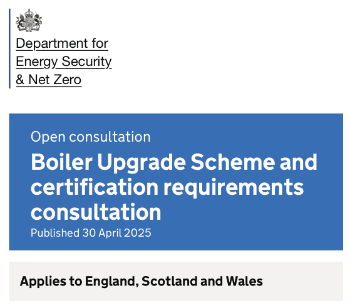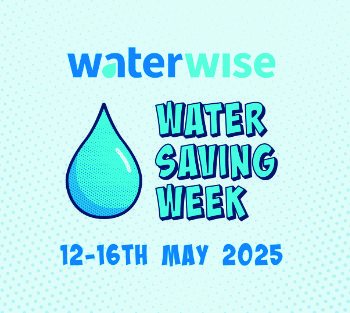What the new retail market will mean for the water sector
Contents |
[edit] Introduction
From April 2017, non-household water customers in England and Wales can choose who supplies their water. That’s around 1.2 million businesses, public sector organisations and charities.
The new retail market will deliver huge economic and environmental benefits. Customers will be able to shop around for improved value for money, innovation and technology use will develop, and water use will become more efficient. The market will also open up to new entrants.
[edit] Background
In 2012, the UK government published its water white paper, Water for Life. This set out the government's vision for effective water management in England – including improved resilience to flooding and drought, environmental protection, greater innovation, and better value for customers.
The Water Act 2014 which followed provided the means for that vision to be implemented, and included the freedom for non-household customers in England and Wales to switch supplier.
The Water Services Regulation Authority's (Ofwat) Open Water programme is the delivery model for this new retail market. Opening of the market is expected to be worth £2.5bn a year and to deliver benefits of over £200m to the UK economy. Customers will be able to seek out the best value for money, combine their bills and receive added value services such as guidance on efficiency and consumption.
[edit] Key departments and organisations
- Department for Environment, Food and Rural Affairs (Defra) – the government department responsible for setting the policy for retail market reform.
- Ofwat – the water services regulator in England and Wales. Responsible for implementing the new open market programme.
- Market Operator Services Ltd (MOSL) – the market reform operator, working closely with Defra and Ofwat.
- Water companies – there are currently 24 individual water companies in England and Wales. While three intend to pull out of the market, the rest will compete for customers from April 2017 alongside new entrant water retailers.
- Non-household organisations – includes businesses, charities and public sector organisations.
[edit] How the new system will work
New players and existing water companies can apply to Ofwat for a licence to provide retail water services – a Water Supply Licence or a Water and Sewage Supply Licence (WSSL).
Certain larger organisations can also effectively become their own 'retailer' and 'self-supply' their own sites and companies in the same group with retail services. However, they would not be able to provide retail services to other non-household customers.
Ofwat in its latest annual report says it expects around 30-40 applications for WSSLs in the coming year. As of September 2016, 16 organisations had applied for Ofwat licences.
Existing companies (incumbents) can also choose to withdraw (exit) from the non-household retail market when it opens. Three companies – Portsmouth Water, Southern Water and Thames Water have already given notice of their exit.
MOSL is developing systems and infrastructure for the new market, including the Central Market Operating System (CMOS), to enable registration, customer switching and settlement between wholesalers and retailers.
A shadow retail market starts in England and Wales on 1 October 2016 to will allow testing of processes and procedures ahead of the market opening.
[edit] The market in Scotland
In Scotland, the market has been operating since 2008. Most activity (switching) has only taken place since 2014 as it gained a higher profile when Defra announced the introduction of a retail market for England and Wales.
[edit] The market in Northern Ireland
In Northern Ireland, the current arrangement of a single water supplier will remain. There is no intention to introduce a retail market.
[edit] The market in Wales
In Wales (those customers served by Welsh Water and Dee Valley Water), water supply competition for non-household customers will remain only for those non-household customers with water consumption over 50 ml per year or greater.
[edit] Changes in UK regions
Non-household customers in the Portsmouth and Thames Water regions will transfer to Castle Water on market opening. Southern Water's customers will transfer to Business Stream. When the market opens those customers will be free to switch to another retail provider should they wish.
United Utilities and Severn Trent are combining their non-household water and wastewater retail businesses into one joint venture business – Water Plus. This has been approved by the Competition and Market Authority (CMA).
Pennon Group (owners of South West Water) recently acquired Bournemouth Water.
Wessex Water has taken a 51% share in Albion Water and set up a joint venture for providing services to new developments.
[edit] Considerations and concerns
According to new entrants, there are still issues with:
- Retail margin (around 2%)
- Ensuring a level playing field
- Clear relationship rules
- Data readiness of incumbents/wholesalers, e.g. meter location grid reference, customer classifications
For wholesalers, there is also concern about credit worthiness and potential failure of a retailer and any resulting difficulty in recovering debt from the retailer's customers.
In Scotland, from 2014-2015, around 35,000 non-household sites (referred to as Supply Point IDs – SPIDs) switched. In the first 10 months of 2015-2016, around 55,000 switched. Clearly, some customers will have several or multiple sites so the number of actual customers switching will be less. That said, there has been a significant increase in switching in Scotland since 2014.
A recent survey by the Major Users Energy Council (MUEC) reported that four out of five major industrial customers were considering switching some of their sites when the market opens. However, they want to see more compelling 'pull factors' to switch than those currently being suggested. Almost two thirds of multi-site customers favoured the idea of a single supplier for water services.
[edit] Next steps
In November 2015, government asked Ofwat to investigate the costs and benefits of extending retail competition to household customers. Government suggested a timescale by the end of this Parliament – April 2020. In September 2016, Ofwat published its initial findings suggesting there are potential benefits, but their scale will depend on how competition is designed and implemented.
Research carried out by the Consumer Council for Water indicated that household customers want to choose their water supplier – but the level of potential saving (£4-£8) saw their interest dropped markedly. Some would still switch if additional services were provided. For example, water efficiency advice, leak detection and repair, or if water was bundled with other services such as energy.
By 2020, we can expect the sector to not only have competition in the retail market for business and potentially residential customers in England but also have markets in water resources, sludge treatment and disposal. Delivery models for new major infrastructure will also evolve further, such as seen with the Thames Tideway Tunnel.
These new models could lead to transformation in industry structure with new providers of upstream services for both sludge treatment and disposal and for new water resources. To facilitate this, expect to see innovation in the form of new infrastructure developers, operators and new financing models outside the current water industry Asset Management Period (AMP) arrangements.
This article was published here by ICE on 14 Sept 2016. It was written by Phill Mills, Director of Policy Consulting Network and Chair of ICE's Water Expert Panel.
--The Institution of Civil Engineers
[edit] Related articles on Designing Buildings
Featured articles and news
C20 Society; Buildings at Risk List 2025
10 more buildings published with updates on the past decade of buildings featured.
Boiler Upgrade Scheme and certifications consultation
Summary of government consultation, closing 11 June 2025.
Deputy editor of AT, Tim Fraser, discusses the newly formed society with its current chair, Chris Halligan MCIAT.
Barratt Lo-E passivhaus standard homes planned enmasse
With an initial 728 Lo-E homes across two sites and many more planned for the future.
Government urged to uphold Warm Homes commitment
ECA and industry bodies write to Government concerning its 13.2 billion Warm Homes manifesto commitment.
From project managers to rising stars, sustainability pioneers and more.
Places of Worship in Britain and Ireland, 1929-1990. Book review.
The emancipation of women in art.
Call for independent National Grenfell oversight mechanism
MHCLG share findings of Building Safety Inquiry in letter to Secretary of State and Minister for Building Safety.
The Architectural Technology Awards
AT Awards now open for this the sixth decade of CIAT.
50th Golden anniversary ECA Edmundson awards
Deadline for submissions Friday 30 May 2025.
The benefits of precast, off-site foundation systems
Top ten benefits of this notable innovation.
Encouraging individuals to take action saving water at home, work, and in their communities.
Takes a community to support mental health and wellbeing
The why of becoming a Mental Health Instructor explained.
Mental health awareness week 13-18 May
The theme is communities, they can provide a sense of belonging, safety, support in hard times, and a sense purpose.
Mental health support on the rise but workers still struggling
CIOB Understanding Mental Health in the Built Environment 2025 shows.
Design and construction material libraries
Material, sample, product or detail libraries a key component of any architectural design practice.

























